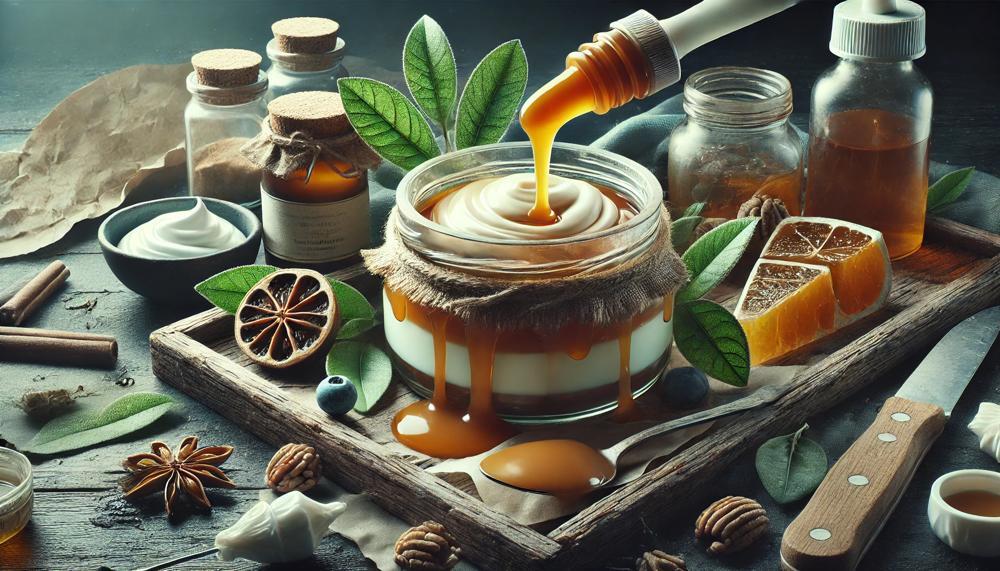Embracing an eco-conscious lifestyle has become a necessity in the modern era, where every choice impacts our planet’s well-being. Among the many questions that arise, one stands out: Can glue, an essential tool for various crafts and hobbies, be composted?
The straightforward answer is: It depends. Glues derived from natural, organic sources like animal-based products or wood are generally compostable. However, synthetic glues made from petroleum-based polymers resist biodegradation, persisting in the environment for extended periods.
As environmental awareness grows, manufacturers are developing eco-friendly alternatives to traditional synthetic glues, harnessing renewable resources like starch or cellulose. These innovative solutions aim to minimize our ecological footprint while meeting our adhesive needs.
Key Takeaways:
- Natural, organic glues can be composted, while synthetic glues should be avoided for composting.
- Eco-friendly, plant-based glues offer a sustainable option for responsible disposal.
- Ingredient transparency and certifications are crucial when selecting compostable glues.
Embark on this journey of responsible composting by exploring the full article, where we delve into the intricacies of glue composition, eco-labels, and best practices for a greener tomorrow.
Table of Contents
How to Dispose of Glue Properly
| Compostable Glue Type | Description | Proper Disposal |
|---|---|---|
| Animal-based glues | Made from natural sources like collagen, casein, or gelatin. Biodegradable and compostable. | Can be added directly to a compost bin or pile. Ensure adequate moisture and aeration for proper decomposition. |
| Vegetable-based glues | Derived from plant materials like starch, cellulose, or gums. Eco-friendly and compostable. | Suitable for composting systems. Break down into smaller pieces or mix with other compostable materials. |
| Certified compostable glues | Formulated to meet biodegradability standards like ASTM D6400 or BPI certification. Often made from renewable resources. | Follow manufacturer’s instructions for proper disposal in composting facilities or home composting systems. |
To ensure proper composting of these glues, it is crucial to follow local composting guidelines and best practices. Avoid adding synthetic, petroleum-based glues or adhesives containing harmful chemicals to your compost pile, as they can contaminate the soil and hinder decomposition.
Composting at Home: The Essentials

When it comes to composting at home, certain types of glues are suitable for this eco-friendly practice, while others should be avoided. The general rule is that natural, organic glues made from plant or animal-based materials can typically be composted safely, while synthetic glues should not be added to your compost pile.
| Compostable Glues | Non-Compostable Glues |
|---|---|
|
|
| These glues are biodegradable and made from organic components, making them safe for composting. | These glues contain synthetic chemicals and non-biodegradable materials that can contaminate your compost and harm the environment. |
When in doubt, consult the product label or manufacturer’s information to determine if a particular glue is compostable. It’s always better to err on the side of caution and avoid adding any potentially harmful materials to your compost pile.
Ingenious Composting Solutions
| Creative and Effective Ways to Compost Glue | ||
| Method | Description | Benefits |
| Soaking | Soak synthetic glue in water until it dissolves and breaks down. The water-soluble components can then be added to a compost pile. | Allows composting of synthetic glues without harmful chemicals leaching into the soil. |
| Mixing | Mix small amounts of glue with other organic materials like food scraps, paper, or cardboard before adding to the compost pile. | Dilutes the glue and aids in its breakdown, while also providing additional carbon and nitrogen sources for efficient composting. |
| Vermiculture | Use a vermicomposting bin with worms to break down glue-containing materials. | Worms and microorganisms effectively decompose glue, producing nutrient-rich compost while reducing waste. |
| Natural Glues | Opt for glues made from plant or animal-based materials, such as hide glue or starch-based adhesives. | Biodegradable and can be safely composted without special treatment, reducing environmental impact. |
By employing these ingenious composting solutions, individuals can effectively compost glue while contributing to a more sustainable environment.
Building Compost Bins: From Convenience to Custom Builds
Building a custom compost bin offers several advantages over using a pre-made convenience bin. Not only does it allow for personalization to suit your specific needs, but it can also be a cost-effective and eco-friendly solution. By constructing your own bin, you have the freedom to choose materials and design elements that align with your composting goals and available space.
| Custom Compost Bin Benefits | Ensuring Compostable Glue |
|---|---|
|
|
When building your custom compost bin, be mindful of the materials you use, particularly the adhesives. Opt for bioadhesives or natural glues made from plant-based ingredients like starch or soy. These eco-friendly options ensure that your bin, including the glue, can fully decompose and contribute to the nutrient-rich compost you’ll use to nourish your garden or plants.
Remember, composting is not only a practical solution for reducing waste but also a sustainable way to enrich your soil and promote a healthier environment.
Composting Tips: Maximizing Efficiency and Quality
| Tip | Description | Reasoning |
| Use natural adhesives | Opt for animal or plant-based glues that are biodegradable and compostable. | These glues break down easily without releasing harmful chemicals into the compost. |
| Check the ingredients | Research the specific type of glue to ensure it doesn’t contain toxic substances. | Some glues may have synthetic additives that can contaminate and degrade compost quality. |
| Buy compostable products | Look for glue products made from natural materials like cornstarch or potato starch. | These are designed to be environmentally friendly and break down safely in compost piles. |
| Use in moderation | Avoid adding too much glue to your compost mixture. | Excessive glue can disrupt the carbon-nitrogen balance, slowing decomposition. |
| Mix thoroughly | Blend adhesive products well with other organic materials before composting. | Proper mixing ensures even distribution and allows the glue to break down evenly. |
| Avoid synthetic glues | Steer clear of industrial-strength glues containing synthetic chemicals. | These can release harmful compounds into the compost, potentially harming soil and plants. |
| Consider alternatives | Use natural binding materials or avoid glue altogether when possible. | This eliminates the risk of introducing unwanted substances into your compost pile. |
| Be cautious with edibles | Avoid using compost containing glue on edible plants as a precaution. | Some glue residues may be harmful if ingested, so it’s best to keep them separate. |
Guidelines for Home Composting
The short answer is that it depends on the type of glue used. Some glues are safe for composting, while others should be avoided due to potential harm to your compost pile and the environment. Here’s a detailed breakdown:
| Compostable Glues | Non-Compostable Glues | Composting Guidelines |
|
|
|
| When composting glue, it’s crucial to follow safe composting practices and use only natural, biodegradable adhesives. Synthetic or chemical-based glues can introduce harmful toxins into your compost, potentially damaging the soil and plants. Always prioritize environmentally friendly alternatives and exercise caution when adding any adhesive materials to your home composting system. | ||
By carefully selecting compostable glues and following proper guidelines, you can safely incorporate them into your home composting system while avoiding potential harm to the environment and your garden.
Compost Bin Enhancement Strategies
When it comes to composting glue, there are several savvy strategies to enhance your compost bin for optimal results. Here’s a concise overview:
| Strategy | Description | Benefits |
|---|---|---|
| Select Biodegradable Glues | Opt for biodegradable glues made from natural, plant-based materials like starch, cellulose, or casein. Avoid synthetic adhesives containing harmful chemicals. | Breaks down easily, enriches compost, and minimizes environmental impact. |
| Proper Layering | Alternate thin layers of glue-containing materials with carbon-rich (dry leaves, shredded paper) and nitrogen-rich (grass clippings, fruit/veggie scraps) layers. | Balances moisture and airflow, accelerating decomposition and preventing foul odors. |
| Consistent Aeration | Regularly turn and aerate the compost pile using a pitchfork or aerator tool. This introduces oxygen and distributes moisture evenly. | Facilitates microbial activity, expediting the breakdown of glue and other organic matter. |
By meticulously implementing these tactics, you’ll create an optimal environment for microorganisms to thrive, efficiently breaking down glue and transforming it into nutrient-rich compost for your garden.
Conclusion
Composting glue requires discernment, as not all adhesives are created equal. The eco-conscious quest lies in embracing biodegradable options derived from nature’s bounty. Plant-based starches, gums, and animal proteins like casein offer an environmentally-friendly pathway to enriching your compost. Certifications like ASTM D6400 or BPI serve as beacons, guiding you towards glues designed to harmonize with the earth’s cycles.
However, synthetic adhesives born of petroleum should be avoided, as their stubborn resistance to decomposition can contaminate the nutrient-rich soil you nurture. Explore the world of bioadhesives, where renewable resources like soy and cellulose reign supreme, fostering a sustainable future.
Remember, composting is an act of reverence, returning organic matter to the nurturing embrace of Mother Nature. By mindfully selecting compostable glues and following best practices, you contribute to a virtuous cycle, transforming waste into fertile sustenance for your garden’s vibrant tapestry of life.






